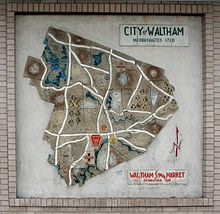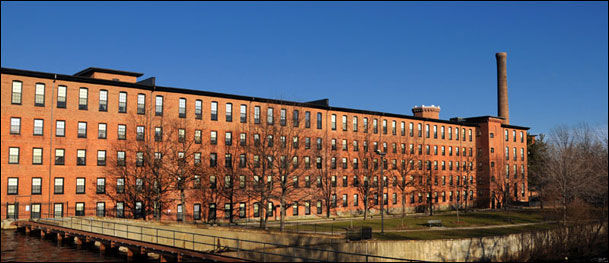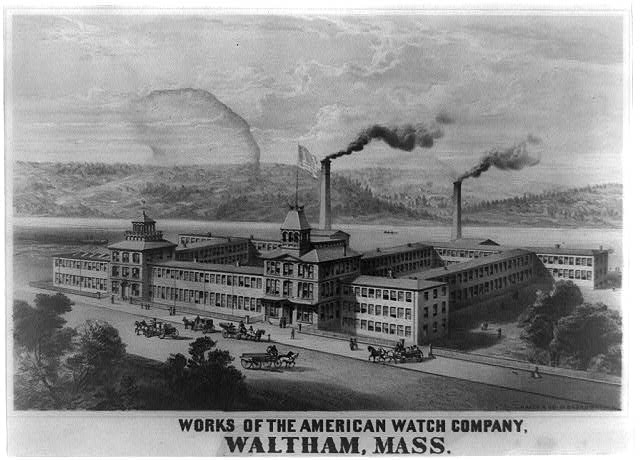Team:WalthamHS BioHawks/History
From 2014hs.igem.org
| (6 intermediate revisions not shown) | |||
| Line 13: | Line 13: | ||
| - | == | + | |
| + | |||
| + | |||
| + | |||
| + | |||
| + | == Our City == | ||
| + | |||
| + | |||
| + | |||
| + | |||
| + | |||
| Line 24: | Line 34: | ||
| - | The Francis Cabot Lowell textile mill in Waltham on the Charles River. | + | <div style="text-align: center;20px ">'''The Francis Cabot Lowell textile mill in Waltham on the Charles River.''' |
| + | </div> | ||
[[file:WalthamWatchCompany.jpg|center|900pix]] | [[file:WalthamWatchCompany.jpg|center|900pix]] | ||
| - | The Watch Factory in Waltham, MA | + | |
| + | |||
| + | <div style="text-align: center;20px ">'''The Watch Factory in Waltham, MA''' | ||
| + | </div> | ||
Latest revision as of 03:20, 21 June 2014
Our City
Waltham, Massachusetts was first settled in 1634 as a farming community. 200 years later, Waltham advanced to the forefront of the American Industrial Revolution. In the early 19th century, Francis Cabot Lowell, known as the Father of the Industrial Revolution, founded the Boston Manufacturing Company in Waltham. At his factory, located along the Charles River, he created the Waltham System, a manufacturing model that transforms raw material (in this case cotton) into a completed product at one location. Before this system, the processes of carding, spinning, weaving and fulling cotton were carried on in separate establishments under different proprietors. It was in 1813 that Francis Cabot Lowell combined the processes of turning cotton into cloth under one roof, creating the world renowned Waltham System. Because of this system, Waltham became the epicenter of the American Industrial Revolution and one of the most productive cities in America. The Waltham Watch Company created millions of watches from the late 19th century through the first half of the 20th century. This is how Waltham got its nickname, “The Watch City”. The Waltham Watch factory was known for its engineering advancements in the standardization of parts, automation of assembly, and use of precision tools. These are all core ideas behind the concept of synthetic biology. Today, Waltham is still an appealing site for science and engineering advances, home to such companies as Raytheon, AstraZenaca and Nova Biomedical. The city has also become a center for research, innovation, and higher education, with Brandeis University and Bentley University leading the way.
 "
"




